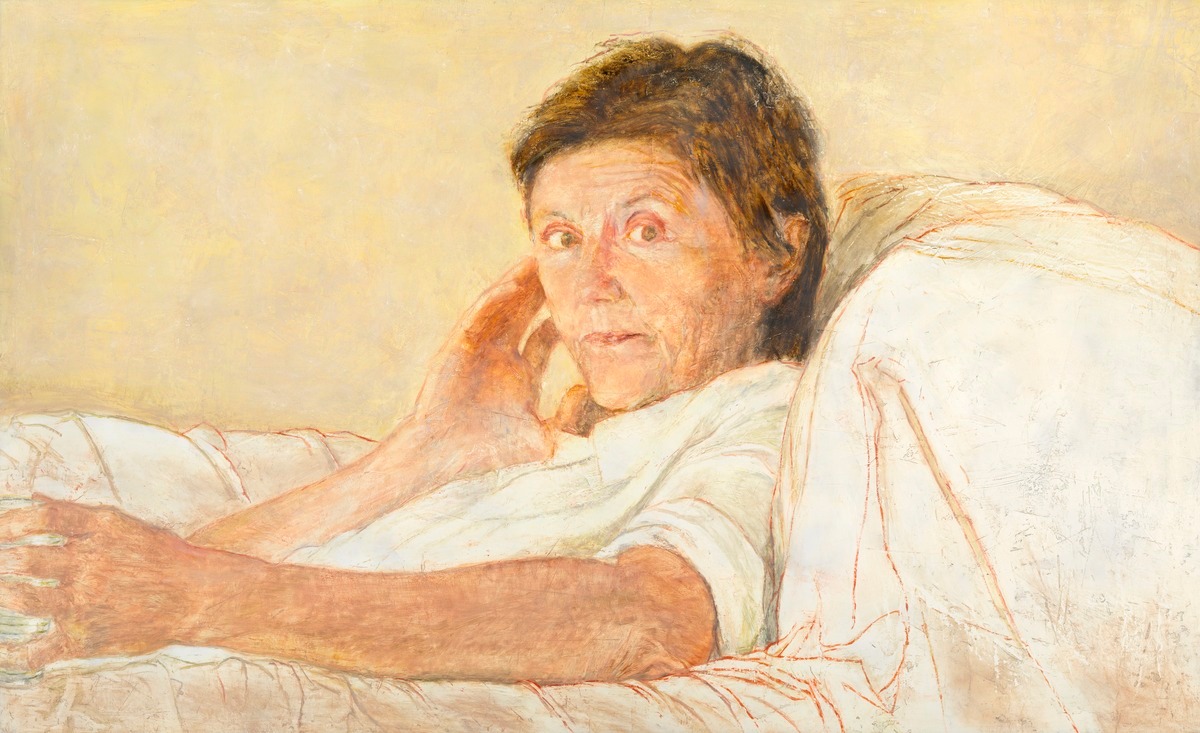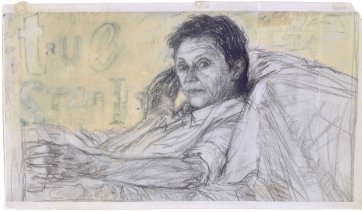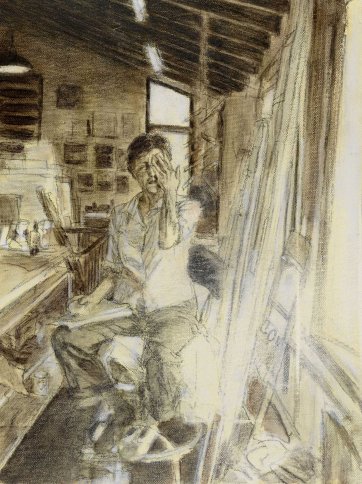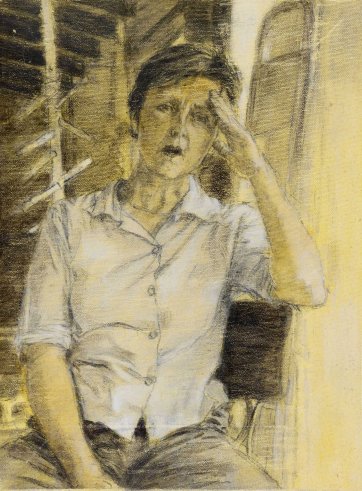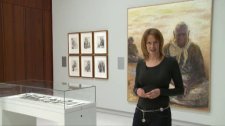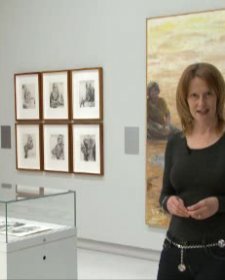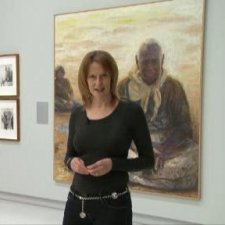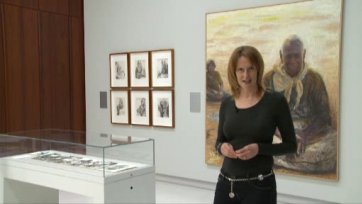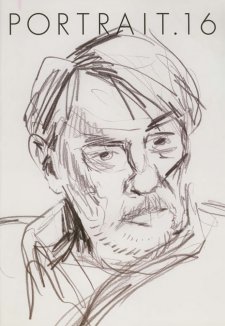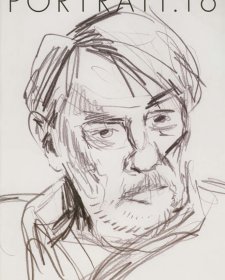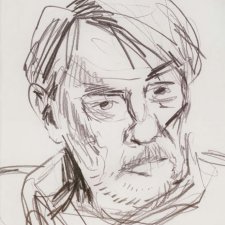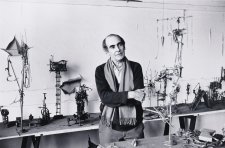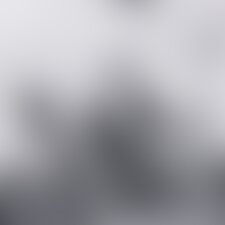'Are you crazy?' was the response writer Helen Garner gave to artist Jenny Sages more than seven years ago when she first suggested a portrait of Helen and her sisters. 'After reading Helen Garner's book True Stories,' says Jenny Sages, 'I had this longing to paint her and her four sisters for the Archibald.'
It seemed that the sisters would never agree. Yet Sages's admiration and respect for Garner's writing continued to grow with each new published work. In 2002, she wrote again to Garner, resulting in a meeting in Melbourne, where the author lives. 'It was a wonderful encounter,' says Sages. 'She is as spare and as honest as her work. I wanted to acknowledge that in the portrait, however, I wanted to achieve more in the work than I initially had the skills to create.'
Sages decided to work the portrait in the wax-based medium of encaustic and pigment, which she normally only utilised for her abstract work. 'It was such a scary trip! - the surface is slippery with a life of its own. I used a wax medium and red pigment to lightly put down the essential elements sourced from over 37 drawings that I had undertaken some year and a half ago. Then, with my heart in my mouth, I dipped my fingers into the wax medium and then into the pigment. Using my fingers as a brush, I just hoped for the best. It only took a week to actually to make the finished portrait because it was either right or wrong, no fiddling around. Wrong meant scraping the whole thing off with a knife and starting again.'
Over the years, Garner has been approached by various people to paint her portrait. More often than not she has declined. 'It's bad enough having your photo taken, which I hate anyway, but my portrait - that's too much to bear. You have to sit in the room with the person for a long time and it needs to be somebody that you can get on with and maybe even like! Jenny came to Melbourne and took photos and we talked together. Later on, I went to her house in Sydney and she drew me quite a bit. I really found our time together very pleasurable and I particularly enjoyed viewing all the sketches. '
The first time Helen Garner saw the final painting it was at the Art Gallery of New South Wales, hanging in the Archibald. 'Yes, I immediately felt that it was me. I was surprised at how big it was, I think, and how my hand looked kind of tough. I don't think it is a flattering picture and I was glad about that. One of my loyal friends protested that I looked too serious and that I do laugh! But let's face it, at my age - which back then would have been pushing 60 - my face is lined. The habits of my expression have made certain shapes in my face and they are not very glamorous. When I looked at the painting I just felt that she had seen me in some quite deep way'.
The painting hanging in the Archibald caught the attention of Portrait Gallery Director Andrew Sayers. As one of Australia's significant writers, Helen Garner had long been a target for inclusion in the collection. Sayers approached Sages about the possibility of the painting coming into the collection, and the artist generously offered to donate the work. Accepted by the Board, it joined her striking oil on canvas image of the pre-eminent female Aboriginal artist, Emily Kngwarreye, also in the National Portrait Gallery's collection.
Normally that is where this story would end. However, Helen Garner relates an interesting coda, that took place once the painting was hanging in Canberra.
'My daughter Alice was recently working up at Jindabyne on Ray Lawrence's new movie. She is still breast-feeding her little boy Ted, who is only a year old, so he was with her on location. Since the day Ted was born, people have been remarking that he looks like me whereas his sister comes straight from her father's side of the family. One of the make-up artists on the film shoot took a shine to Ted. On her free day she went into Canberra and happened to wander through the Portrait Gallery. There she spotted, from across the room, an image of a short-haired woman, that had only just been put on display. She took one look at it and thought, "That woman has Ted's eyes." She went closer and read the plaque - and it was his grandmother!'
True story.
